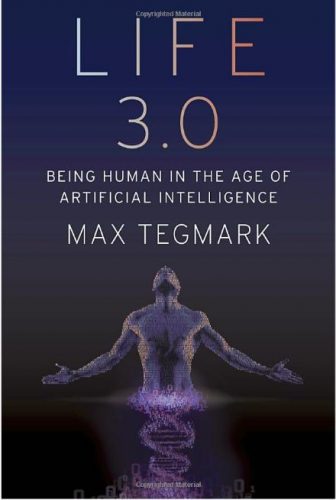Intelligence is simply the ability to solve complex tasks—or so says Max Tegmark, founder of the Future of Life Institute and author of the new book Life 3.0: Being Human in an Age of Artificial Intelligence. By his definition, what separates our problem-solving and thinking abilities from those of a supercomputer or a calculator? Are we already inferior to chess-playing computers and statistical models? And most importantly, what makes us human, if not our superior intelligence? Tegmark poses and addresses these questions as he seeks to answer both what it means to maintain our humanity as we develop AI technology and why this issue is important.
According to Tegmark, Life 1.0 was primarily comprised of bacteria working towards replication and survival, and Life 2.0 consisted of animals pursuing goals beyond survival by manipulating their environment. The first two versions were limited by living creatures’ inability to modify themselves, but Life 3.0 does not have the same constraint, Tegmark writes—calling it the “master of its own destiny.” The implications of computers with an awareness of their own abilities and the cognition for self-improvement are massive. For one, as he describes, intelligence is power, and it could be dangerous to give machines with no inherent ethical mind a position of power. Even though these machines would theoretically be under human control, artificial intelligence involves determining the subtasks relevant to successfully completing a larger task, and with no way to predict these subtasks, it may be impossible to program a moral, legal and practical mindset into these machines.
However, Tegmark remains overwhelmingly optimistic, explaining that technology is responsible for nearly all the improvement in quality of life since the stone age and it will undoubtedly continue to be moving forward. In bite-sized chunks of easily-digestible computing and philosophical concepts, Tegmark convincingly illustrates the necessity for further evaluation of our goals as a society and further planning for AI’s incorporation into our world—a discussion that Tegmark says may be the most important conversation of our time.
As either an introduction into the complexity of artificial intelligence or a further exploration of its potential and moral implications, Life 3.0 serves as a magnificent guide with a series of examples and shameless illustrations. Despite these easily-manageable explanations, Tegmark never shies away from an issue due to its complexity. Regardless of one’s field of study or profession, he forces the reader to consider how AI may impact one’s life and what preparation is required. It may be wise, or possibly even intelligent, to pick up a copy on the way home today.

